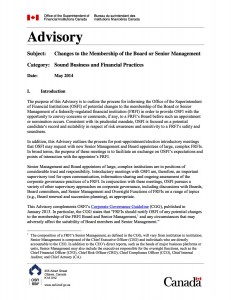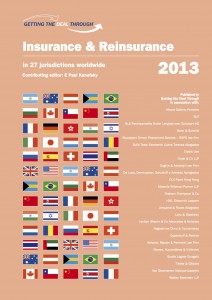On December 18, 2025, the British Columbia government announced that the Restricted Agent Licensing Regulation (the “Restricted Agent Regs”) under the Financial Institutions Act will come into force on January 1, 2027. The new regulation will introduce a licensing regime for businesses that sell certain insurance products incidentally to the sale of another product or service. The Restricted Agent Regs are available [here].
Once in force, British Columbia will become the fifth province to adopt a restricted agent licensing framework designed to protect consumers who purchase insurance products in connection with another transaction, such as extended warranties or credit protection insurance. Similar regimes are already in place in Alberta, Saskatchewan, Manitoba, and New Brunswick. In contrast, most other provinces and territories do not currently regulate the incidental sale of these types of insurance products by retailers or service providers.
Development and implementation timeline
The province has indicated that the restricted agent licensing program is still under development. Consultations and a formal legislative rule-making process are expected to begin in early 2026. The BC Insurance Council is expected to begin accepting applications for restricted agent licences in November 2026.
Businesses that currently sell insurance products captured by the Restricted Agent Regs will be required to obtain a restricted agent licence by March 31, 2027. Any business that begins offering restricted insurance products on or after January 1, 2027 will be required to obtain a licence before offering those products.
Licensing and compliance obligations
Each restricted agent licence holder will be required to designate a representative who will act as the primary point of contact with the Insurance Council. In addition, individuals involved in the sale of restricted insurance products will be required to complete training related to the specific classes of insurance they are authorized to sell.
Permitted business types and classes of insurance
The Restricted Agent Regs also specify the categories of businesses that may hold a restricted agent licence, as well as the classes of insurance each category will be permitted to sell. These proposed categories are summarized below:
| Business Type | Classes of Insurance Permitted |
| Construction equipment dealerships | Credit protection insurance; Construction equipment warranty insurance; Guaranteed asset protection insurance |
| Credit grantors | Credit protection insurance |
| Customs brokers | Cargo insurance |
| Deposit-taking institutions | Credit protection insurance |
| Extra-provincial trust corporations | Credit protection insurance |
| Farm implement dealerships | Credit protection insurance; Farm implement warranty insurance; Guaranteed asset protection insurance |
| Freight-forwarding companies | Cargo insurance |
| Funeral providers | Funeral services insurance |
| Mortgage brokers | Credit protection insurance |
| Motor vehicle dealers | Credit protection insurance; Guaranteed asset protection insurance; Vehicle warranty insurance |
| Peer-to-peer vehicle service providers | Rented vehicle insurance |
| Pleasure craft dealerships | Credit protection insurance; Guaranteed asset protection insurance; Pleasure craft warranty insurance |
| Portable electronics vendors | Portable electronics insurance |
| Transportation companies | Cargo insurance; Travel insurance |
| Travel agents | Rented vehicle insurance; Travel insurance |
| Travel wholesalers | Rented vehicle insurance; Travel insurance |
| Trust companies | Credit protection insurance |
| Vehicle rental agencies | Rented vehicle insurance |
What this means for insurers, retailers, and intermediaries
The introduction of the Restricted Agent Regs represents a significant regulatory change for insurers and businesses involved in the incidental sale of insurance in British Columbia.
Insurers should assess their distribution arrangements in BC to ensure that retail partners and intermediaries are appropriately licensed, trained, and supervised before the regime comes into force.
Retailers and service providers that offer insurance products alongside other goods or services should begin evaluating whether their offerings fall within the scope of the new regulation and plan for licensing, training, and compliance obligations well in advance of 2027.
Although the licensing framework is still under development, businesses affected by the Restricted Agent Regs should begin preparing now to avoid disruption once the regime is implemented.
This article is provided for general information purposes only and does not constitute legal advice. If you have questions about how the Restricted Agent Regs may apply to your business, please contact a member of our firm for advice tailored to your circumstances.




